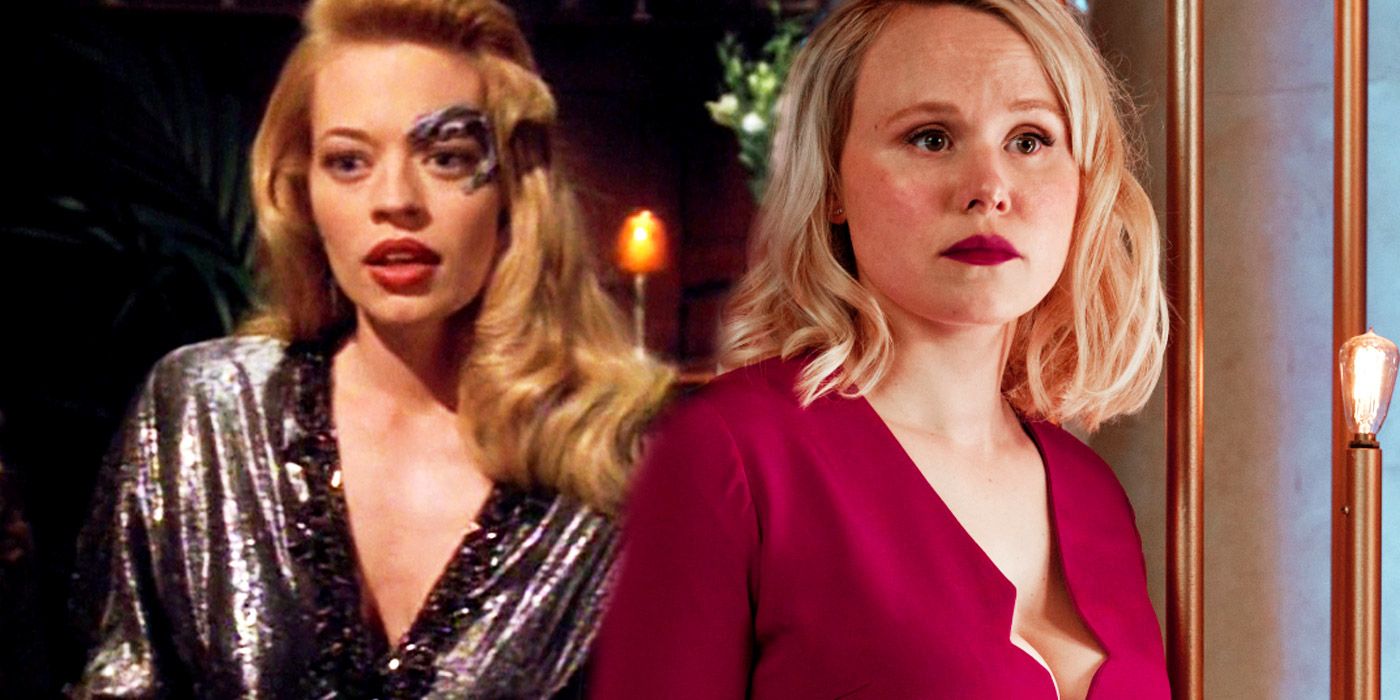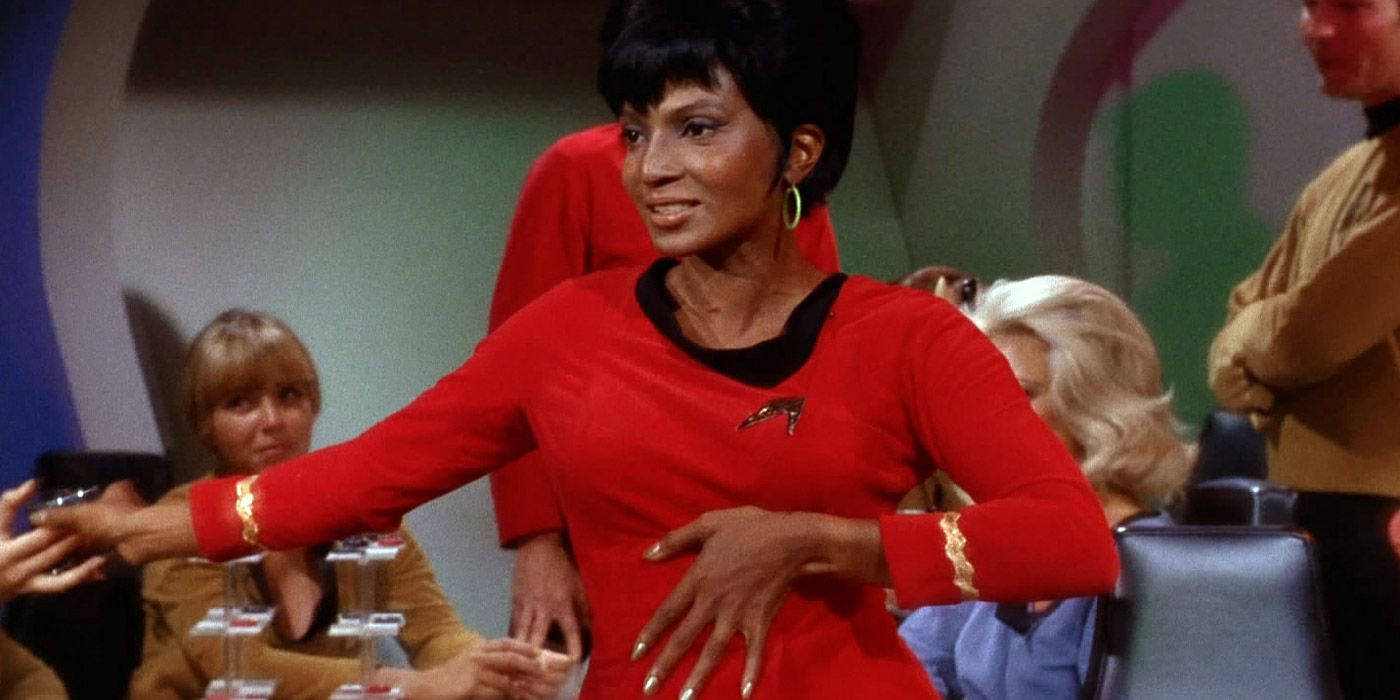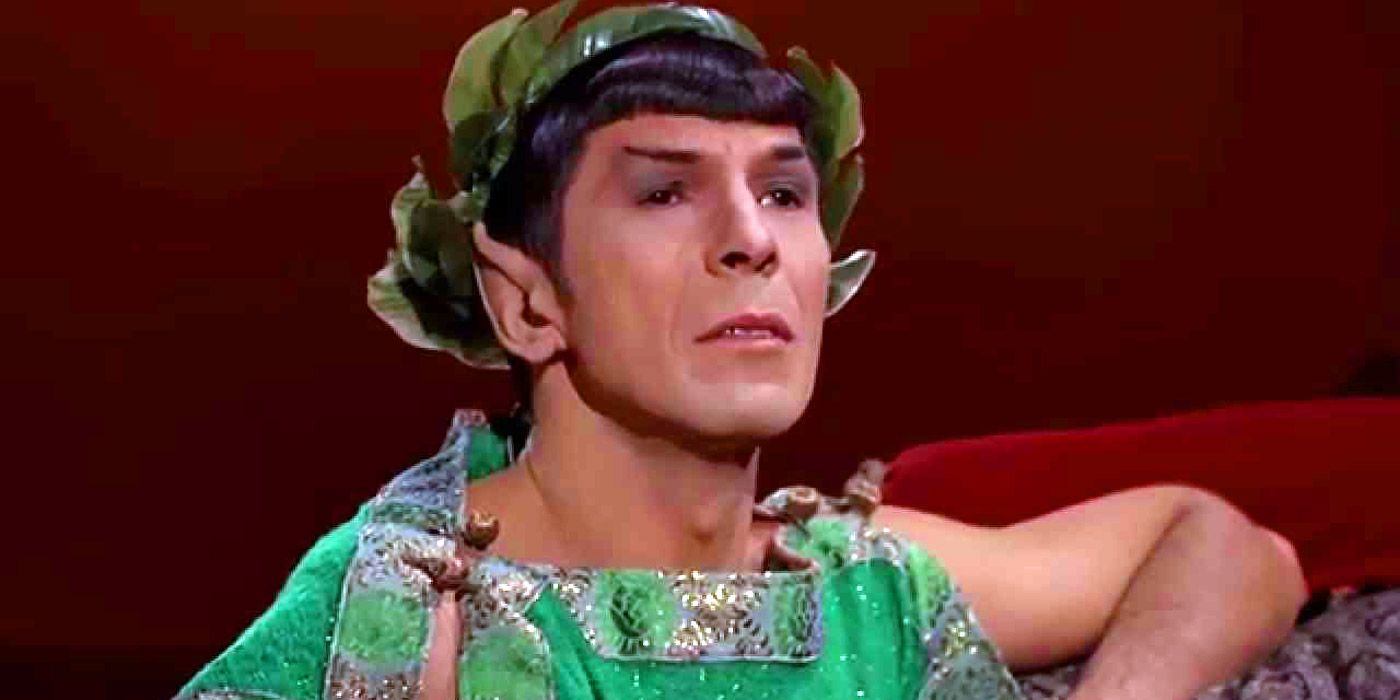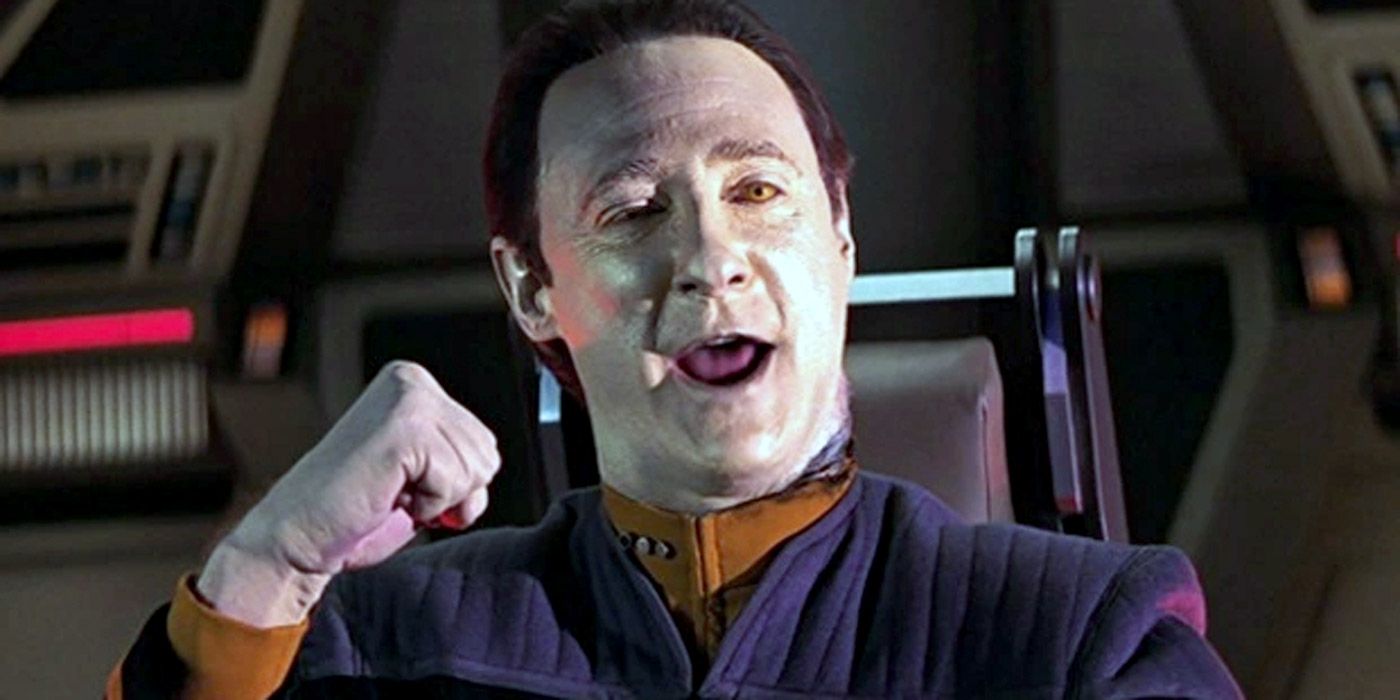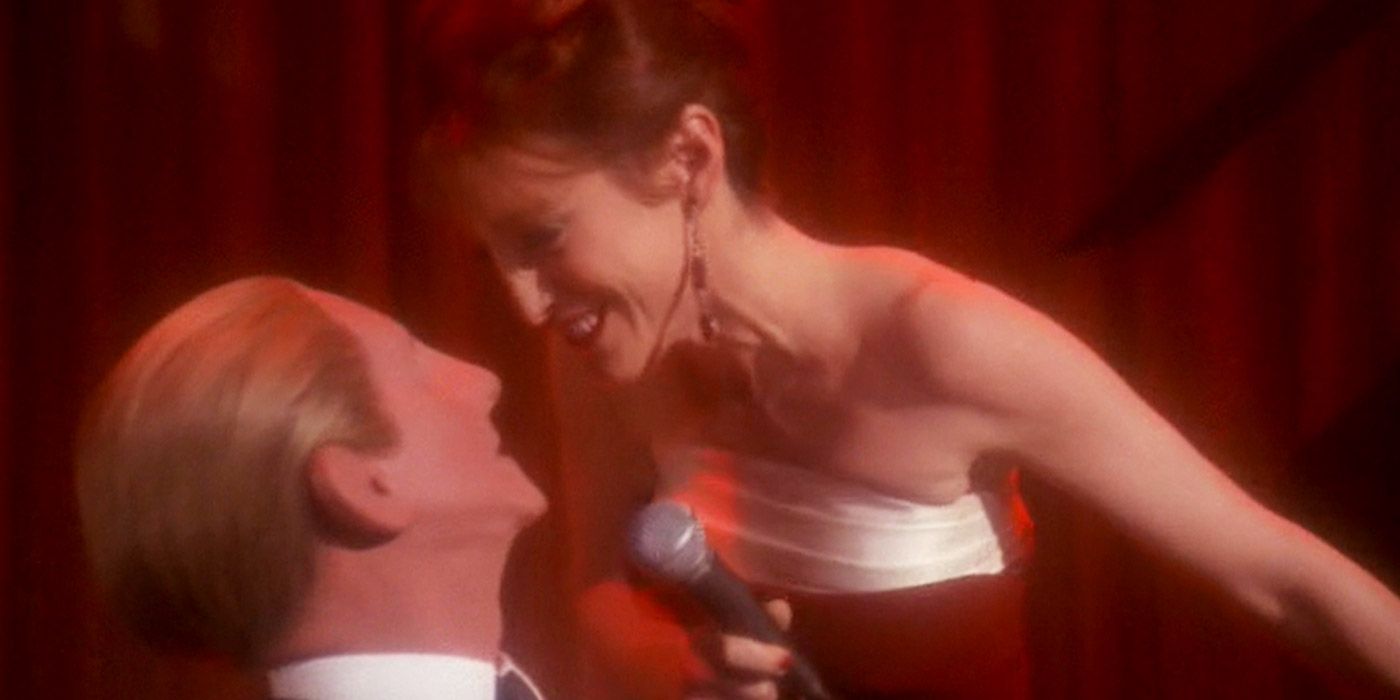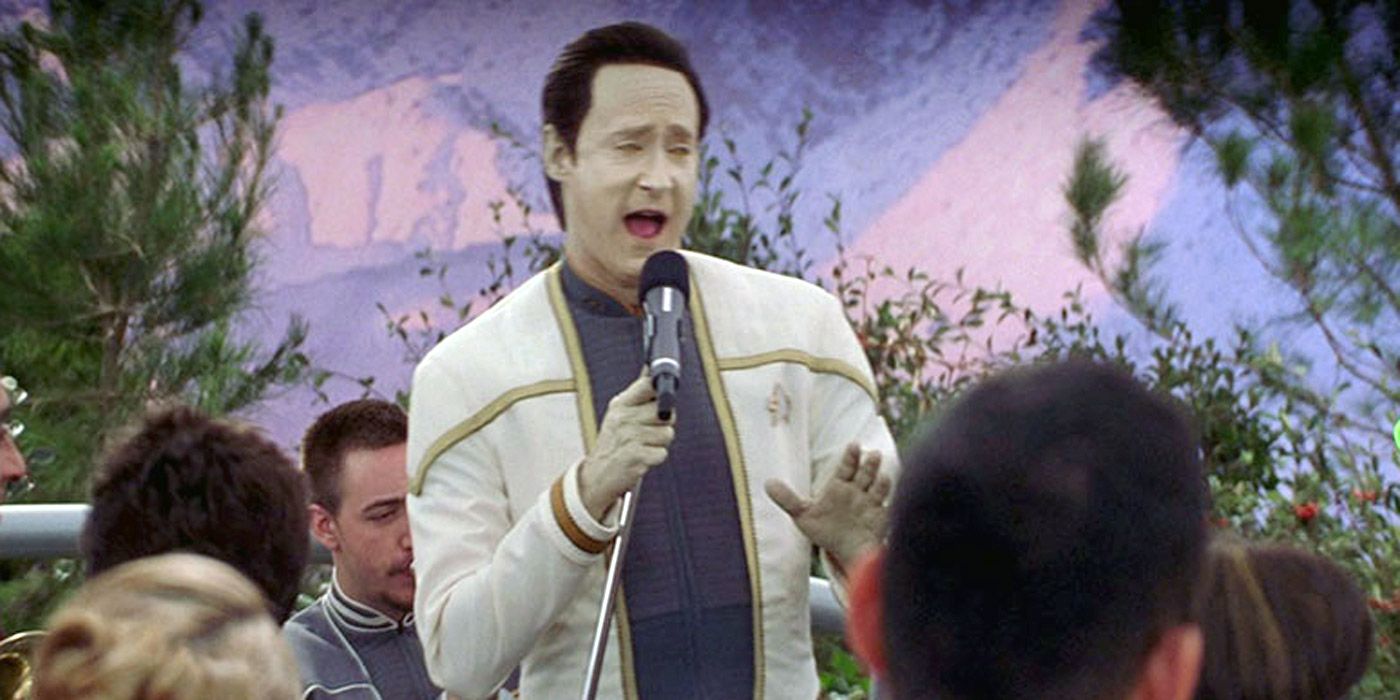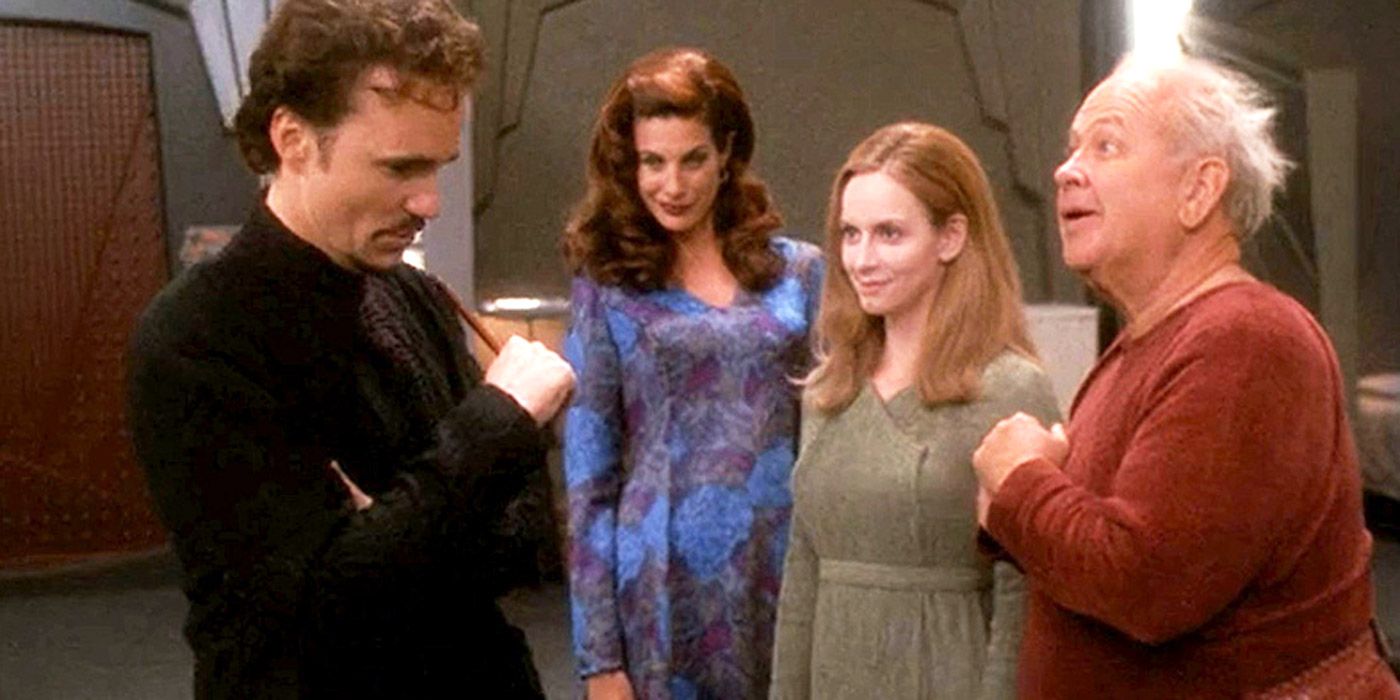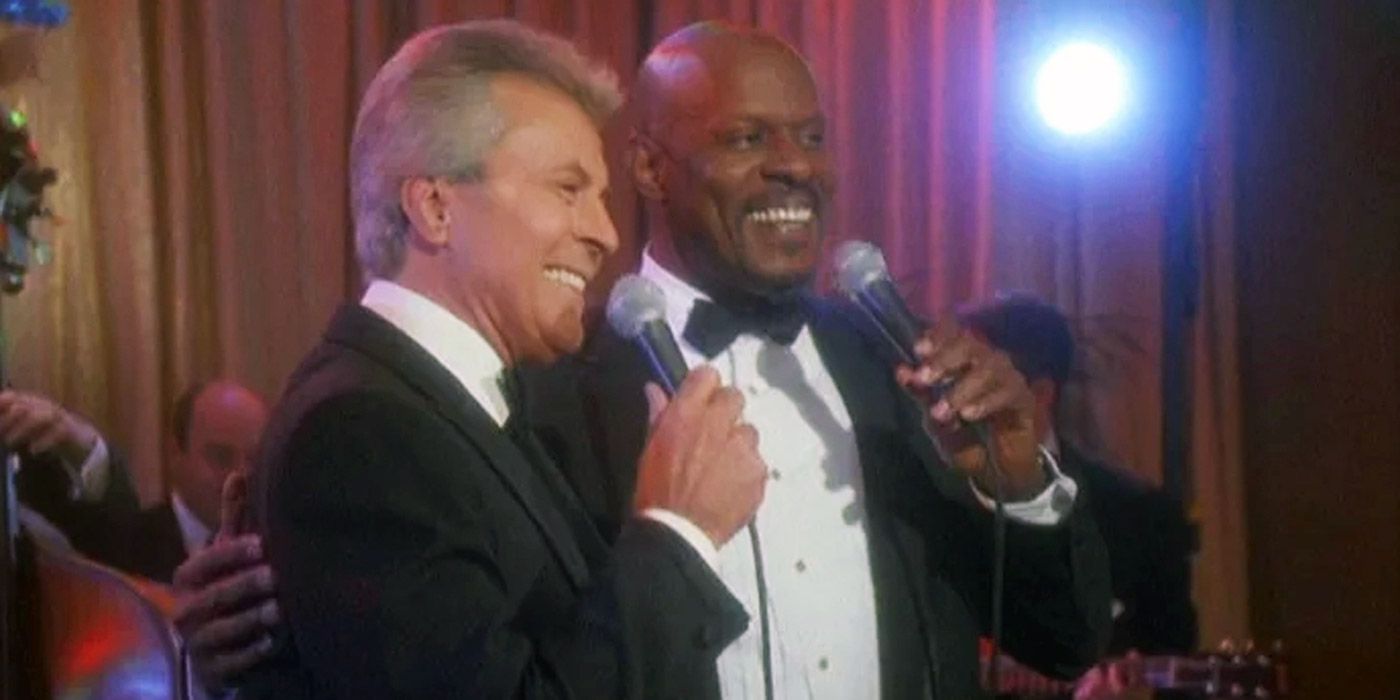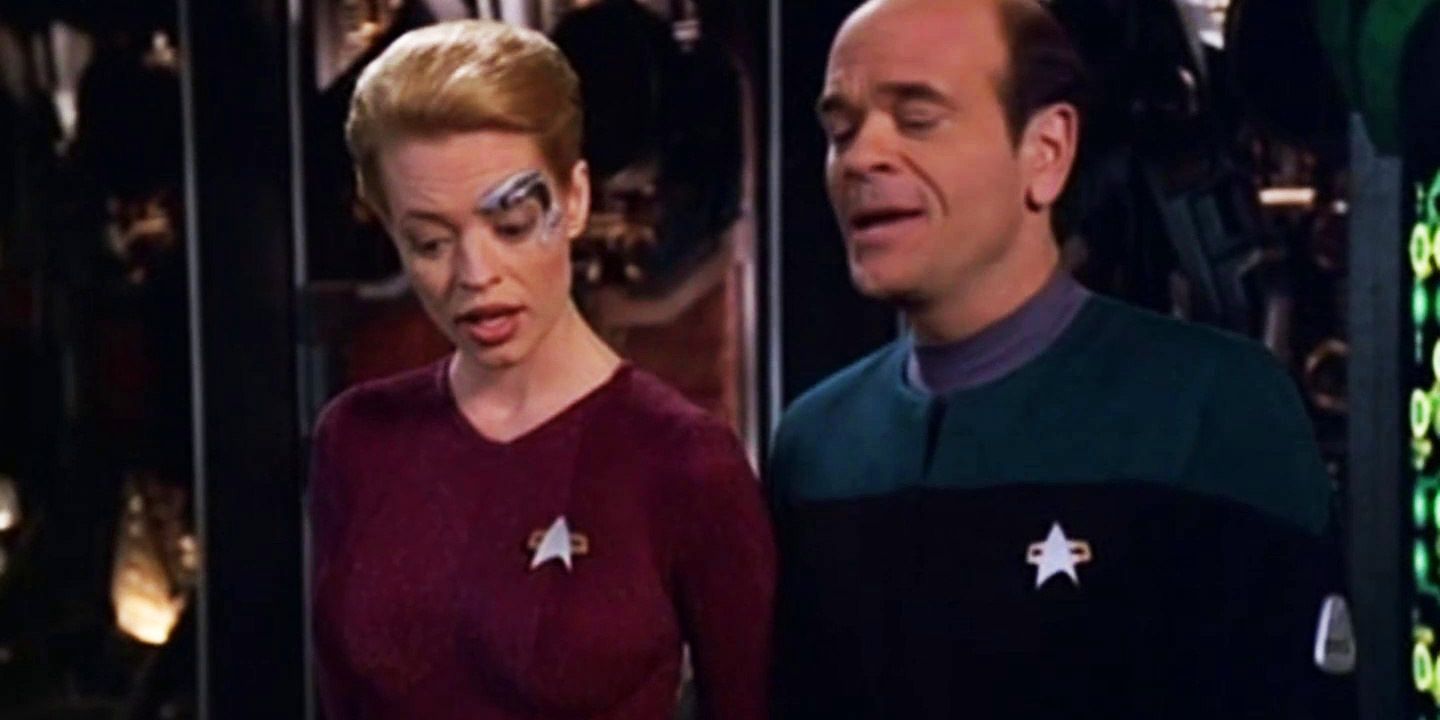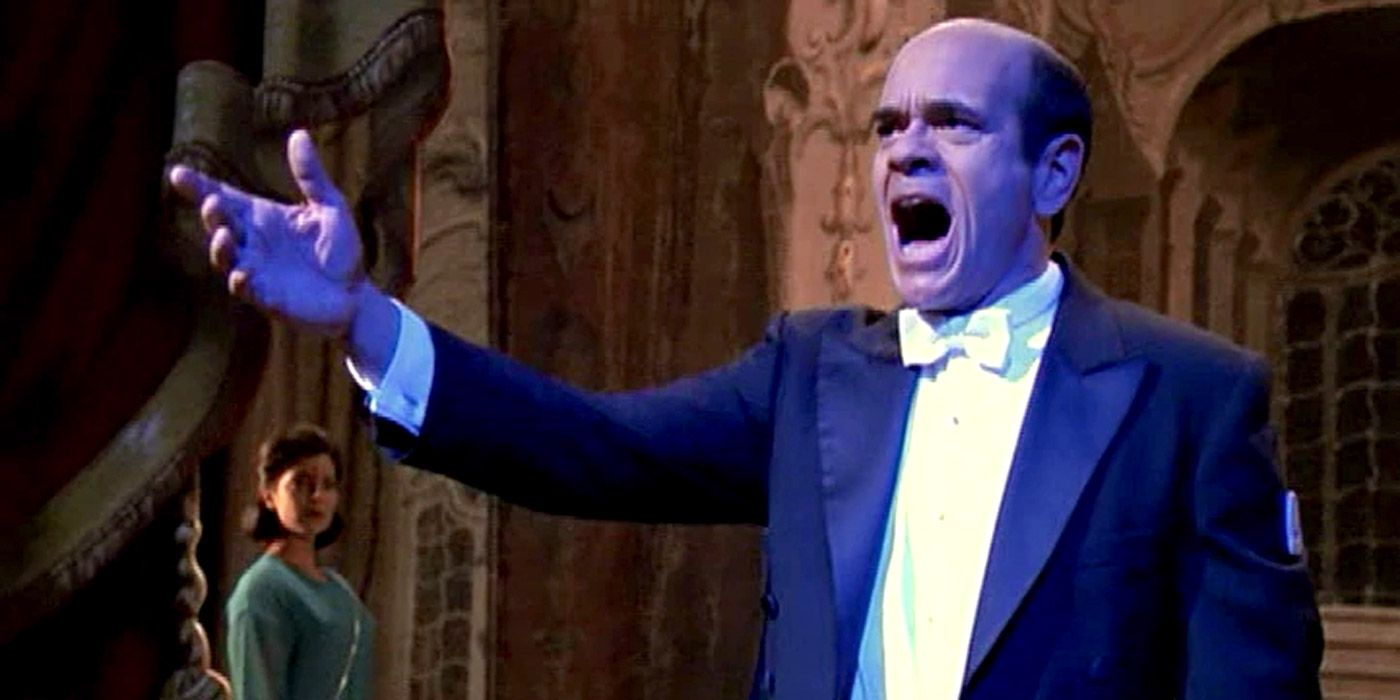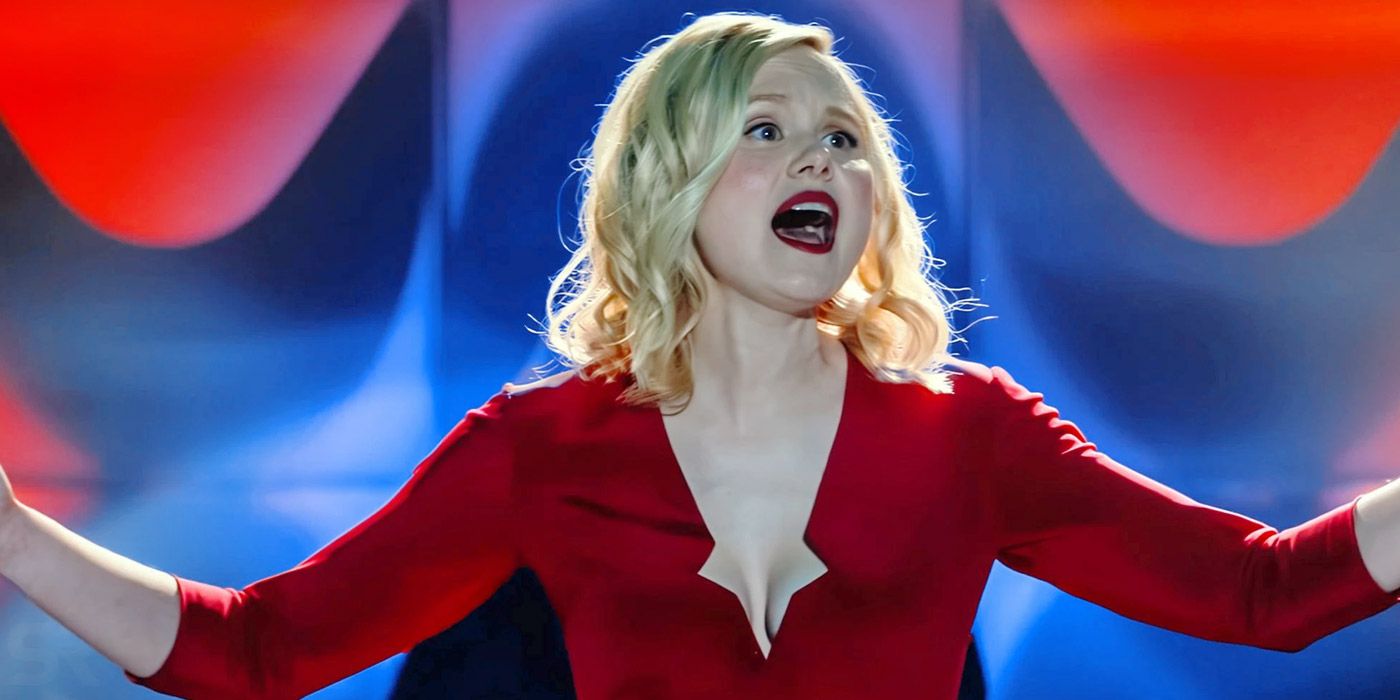SPOILERS for Star Trek: Picard Season 2 below.
With a cast rife with Broadway experienced actors and professional singers, the Star Trek franchise has subsequently entertained various musical interludes that serve the purpose of both character development and distinctive entertainment. Recently, Picard season 2 gave Alison Pill a scene to show off her singing talents with a powerful rendition of Shadows of the Night. Picard is continuing the Star Trek tradition of sprinkling musicality into its narrative, reminiscent of its predecessors, so here is an exploration behind the musical sequences in the franchise.
From Nichelle Nichols to Alison Pill, there have been a vast amount of practiced singers within each cast in Star Trek. Star Trek: The Original Series likely popularized the phenomenon of including musical moments in the franchise due to the 1960s appeal of hiring singers or band members to be guest stars and extras so a marketable song could be created, an example being the ragtag band from "The Way To Eden." Professional singers from the franchise include Robert Picardo, Nana Visitor, Brent Spiner, and James Darren. Music is a huge element of Star Trek and has inspired a pattern in every installment including the most recent series Picard, where Alison Pill pays homage to these interludes, the song most notably a homage to Jeri Ryan's interrupted cover of That Old Black Magic from Star Trek: Voyager season 4 episode 18 "The Killing Game."
The musical instances in Star Trek set it apart from most sci-fi properties by adding an ecstatic and altogether bubbly vibe to its universe. While there is war and mayhem in space, these songs highlight the franchise's ability to focus on the light in the darkness and the optimism its concept represents. The performances are consistently charismatic, bright, and creative which adds to the earnest nature of Trek. In large, the universe's humanity is what Star Trek attempts to extract, and remains as strong as ever with these scenes. Music, especially, gets that point across in the franchise.
Uhura's Song
"Uhura's Song" is first heard in TOS season 1 episode 2 "Charlie X" as the communications officer sings along to Spock playing his instrument. This is Uhura's first stand-out moment in the series and perhaps one of the most memorable of her character. It is sung by Nichelle Nichols herself who later put the song on her album Down To Earth which contains covers such as "Feelin' Good" or "That's Life". Before taking on the role of Uhura, Nichols performed with the legendary Duke Ellington. The purpose of the song in Star Trek is to establish Uhura's outgoing and convivial personality. She is a good influence on her friends and crewmates, as shown during her song when she playfully goads Spock into playing longer and joining in on the fun. This song became a significant catalyst for various instances of musical interludes in the franchise.
Maiden Wine
Leonard Nimoy was a prolific singer in the 1960s-1970s, creating 5 studio albums in his time. It is not altogether surprising Spock is given a moment to shine with his uniquely angelic voice. In TOS season 2 episode 10 "Plato's Stepchildren" Spock is forced through mind control to sing "Maiden Wine". Nimoy wrote the song himself for the episode and it can be found with a second verse on his 1969 album The Touch of Leonard Nimoy. Though most well-known for a chipper Lord of the Rings-themed song "The Ballad of Bilbo Baggins", Nimoy is an accomplished singer who can claim a vast collection of music. "Maiden Wine" puts Spock's internal conflict on naked display. He is forced to show emotions which is a human failing he has avoided all of his life. The song is an extension of his pain towards mind control and its consequences.
A British Tar
In the third installment of the Star Trek TNG sequel films, Star Trek: Insurrection, Picard and Worf begin to sing "A British Tar" over the comms of their ship in order to distract Data from his dangerous instance of malfunctioning. The song is from the comic opera H.M.S. Pinafore and was composed by the lyricist duet Gilbert and Sullivan in the 19th century. The song choice on Picard's part is in character since he and Data in TNG share a mutual interest in Shakespeare and seemingly pre-20th-century culture. Several of the TNG actors can sing professionally, including the Broadway experienced Brent Spiner, so this brief scene of levity in Star Trek: Insurrection inspires a jovial and sing-a-long vibe with a harmony of strong voices.
Fever
Having performed in the hit musical Chicago on Broadway, Nana Visitor bewitches the audience with her musical interlude of Fever in DS9. In season 6 episode 20 "His Way" of Deep Space Nine Lola Chrystal, who is a holographic replica of Kira, sings her sultry rendition of the song to Odo. Fitting with the theme of Vic Fontaine's club, "Fever" was a song written in 1956 by Eddie Cooley and Otis Blackwell which has been previously covered by classic singers such as Elvis Presley and Madonna. Lola's appearance in the episode is an attempt by Vic Fontaine to aid Odo in his goal of romancing Kira. The lyrics of the song reflect Odo's feelings towards Kira, especially the lines "Never know how much I love you, never know how much I care." Throughout DS9, Odo has significant trouble opening up about his feelings for Kira choosing instead to repress them.
Blue Skies
The popular song written by Irving Berlin in 1926 "Blue Skies" makes its first appearance in Star Trek in the fourth installment of the TNG sequel films Star Trek: Nemesis. Data pays tribute to Deanna Troi and Will Riker at their wedding by jazzily singing it. The song becomes much more than a brief journey into Brent Spiner's vocal talents when B-4 sings it at the end of the film following Data's death. Data is thought to be dead but the final appearance of the song confirms that Data, at the very least, installed his memories into his brother and will live on that way. It further represents Data's newfound emotions which set him apart from his android brethren since he is a creative and inspired character in the show and films.
Augment Chorus
Season 7 Episode 5 of Deep Space Nine "Chrysalis" is one of the few episodes starring the genetically-enhanced, but behaviorally divergent, group of Augments Bashir has become familiar with being an Augment himself. They bring their friend Sarina to Bashir in hopes of restoring her voice which he finally succeeds in doing. This inspires an extravagant chorus Patrick, the childishly blunt character in the team, leads of Do-Re-Mi. The simple song serves as a revelation for both Sarina and Julian Bashir since she is able to find the voice she's been without all her life, and especially for Bashir since his main goal in the series is to make a significant difference in someone's life using medical means. This DS9 moment centering around found family and optimism is perhaps the most heartwarming scene in all of Star Trek since it reflects Trek's theme of a hopeful, better future.
Sisko & Fontaine Duet
Vic Fontaine perhaps sings more than any character in Star Trek. He is supposed to be reminiscent of 1950s-60s singers such as Frank Sinatra or Dean Martin. The main characters of Star Trek: Deep Space Nine often visit his hologram in Quark's holosuite. In season 7 episode 15 of DS9 "Badda-Bing Badda-Bang" Avery Brooks playing Sisko joins Fontaine actor James Darren in a memorable duet cover of Sinatra and Count Basie's "The Best Is Yet To Come". Darren is an experienced singer yet Avery Brooks shows equal vocal and performance talent when he joins him. The duet is significant in the plot due to Sisko's prior reluctance to visit this specific program in the holosuite. He has fears about the morality of enjoying a simulation of the 1960s, feeling as if it would be betraying his own heritage and history. However, by going to the holosuite and joining Fontaine in a song, DS9 shows he is able to overcome many of these concerns. It is a moving scene that speaks of union, acceptance, and necessary self-indulgence.
You Are My Sunshine & My Darling Clementine
In Star Trek: Voyager, the Emergency Medical Hologram forms a bond with the recently reformed Borg Seven of Nine. The world of the Federation is new to Seven and her newfound interest in music and its technicalities inspires the EMH to introduce her to the art through singing lessons. During their duets together, they practice both "You Are My Sunshine" and "Oh My Darling, Clementine". With Jeri Ryan's higher-pitched angelic voice and Robert Picardo's exercised operatic tone, they create a pleasant harmony that emulates their mutually beneficial dynamic. The lessons serve to develop their relationship and divulge the growing feelings EMH has for Seven of Nine. The lyrics of these songs, especially "You Are My Sunshine", truly reflect his unrequited love for her. "You'll never know, dear, how much I love you," is a lyric offering more tragedy in these scenes than levity.
The EMH's Opera
One of the more prolific professional singers in Star Trek, Robert Picardo, excels in operatic vocals and music. In Voyager, Picardo is often utilized for scenes centering around opera such as the extravagant dream sequence where he himself sings one of the EMH's favorite songs, "La Donna E’Immobile", to Tuvok. The most notable operatic moment for Picardo's character is in VOY season 6 episode 13 "Virtuoso" where the EMH attempts to maintain the fame he's found on a planet previously lacking music. This is the only instance where Robert Picardo doesn't actually sing, the vocals belonging to singer Agostino Castagnola. Despite this, Picardo portrays the depth of emotion required of the final song in the episode, "Rondine al Nido". Voyager's EMH is being cast out of a society that does not understand the meaning of music in culture. The existence of the song, which was fittingly composed as a lament about lost love, is a final tribute to the necessity of inspired art and why society needs it to connect to their humanity and passions. It is a touching yet futile scene due to the loss of creativity on this planet and Picardo exudes the tragedy with great expression.
Shadows Of The Night
In season 2 episode 6 "Two of One" of Picard, Alison Pill as Agnes Jurati sings "Shadows of the Night". Alison gives an impressive performance both in voice and in character since Jurati is under pressure. The scene serves as a transition from Jurati's firm clutch on the control of her own mind and body to an overtaking from the Borg Queen. The lyrics represent Jurati's internal struggle with the Queen in season 2 and how she succumbs to her influence after the powerful song concludes. "Surrender all you dreams to me tonight, they'll come true in the end," are lyrics most informative about the Devil-on-the-shoulder manipulation the Borg Queen supplies while also acting as an explanation for what Jurati is sacrificing by giving in to her. Alison succeeds in portraying the intoxication of her co-dependency with the Queen as well as the poisonous temptation of what she's being offered.
Even now, Trek is upholding a long-held tradition of including unique scenes of musicality in its franchise. Picard has proven its consistent pattern in the Star Trek universe with Agnes' season 2 song, and hopefully, a new installment will deign to continue the trend. The history of the musical interludes in Star Trek is incredibly broad and every song has a story, these being the explanations for each of them.
Star Trek: Picard Season 2 is streaming on Paramount+.

